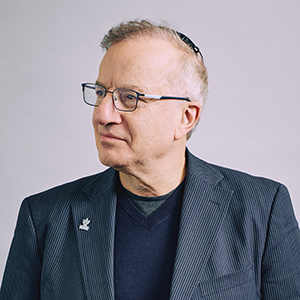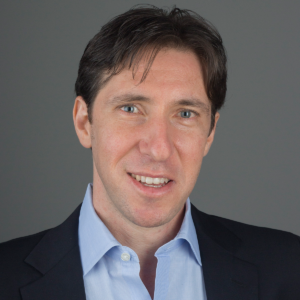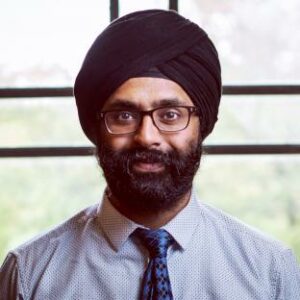Day 1 — Tuesday, May 7
REGISTRATION & BADGE PICKUP
DEEP DIVE
Red Teaming to Test Limitations of LLMs


Large Language Models (LLMs) have impressive capabilities in various applications, but their vulnerabilities remain significant concerns. In this session, led by Tristan Naumann and Stephen Pfohl from Google, we will explore the concept of “red teaming” as a proactive approach to identifying and testing the limitations of LLMs to uncover potential harms. Red teaming involves simulating adversarial scenarios to evaluate robustness, and to examine how it may extend to health settings.
WELCOME RECEPTION & REGISTRATION
Come pick up your badge and enjoy cocktails, hors d’oeuvres and dinner to the music of local band Jibaro Pop Trio, along with remarks from Dereck Paul, CEO of Glass Health. (Happy Hour from 5–5:30 PM, Dinner from 5:30–7:30 PM)

OPTIONAL: SURGICAL AI ROUNDTABLE
This optional roundtable discussion will inform a perspective piece on surgical AI interfaces. Led by Gabriel Brat.
Day 2 — Wednesday, May 8
BREAKFAST & LATE REGISTRATION (OPTIONAL: INOVALON ROUNDTABLE)
Optional: drop by the Inovalon Roundtable, led by Scott Sbihli.
OPENING REMARKS

Editor-in-Chief, NEJM AI
PANEL 1
The Last Mile: Working with AI in the Surgical Environment



On the heels of last year’s surgical AI panel, this year’s panel will continue the exploration of novel tools for improving surgical care. What are the unique surgical data challenges to bring together unstructured operative reports and structured peri-operative data? How do we build platforms that can be used in the operating room, given the unique challenges of interacting with data in these situations? How do we design global metrics of performance for surgeons and procedures beyond the blunt instruments used by CMS and the Joint Commission? How do we integrate and analyze operative video data in the era of multi-modal foundation models?
BREAK
INVITED TALK 1
In silico to in vivo: AI, Augmented Intelligence, at Health System Scale

Senior Research Scientist, KP Division of Research
While there is tremendous enthusiasm about AI in healthcare, many uncertainties remain about implementation and use at the bedside. This talk will review examples of diverse health AI use cases from KP that inform health system-scale approaches of AI as augmented intelligence.
SPOTLIGHT TALK 1
When the Model Trains You: A Case Study in Induced Belief Revision from a Machine Learning Model’s Development

SPOTLIGHT TALK 2
From Alert to Mortality Reduction: Evaluating Clinician Actions Following Implementation of a Deterioration Prediction Model

LUNCH
OPENING KEYNOTE
Transforming Healthcare at Home: AI-Powered Touchless Physiological Monitoring

Efficient remote monitoring of individuals’ vital signs, sleep patterns, medication responses, and overall health from the comfort of their homes is pivotal for the future of healthcare. This necessity arises from burgeoning healthcare expenses, limited accessibility to healthcare in rural and disadvantaged regions, and a growing elderly population frequently living alone, while managing chronic ailments. This presentation introduces an innovative technology for unobtrusive, continuous monitoring of physiological signals within home environments, seamlessly integrated into patients’ daily routines. Our solution, akin to a passive wireless device resembling a household WiFi router, utilizes advanced machine learning algorithms to interpret radio signals reflecting off individuals’ bodies. This enables the inference of crucial metrics such as respiration rate, heart rate, sleep stages, sleep apnea occurrences, oxygen saturation levels, mobility patterns, gait analysis, and behavioral symptoms—all achieved without necessitating patients to wear cumbersome sensors or shoulder additional burdens. Rigorous validation against gold standards confirms the accuracy of our models. Moreover, our technology facilitates remote, quantifiable, and objective assessment of treatment effectiveness, identifies novel biomarkers, and paves the way for data-driven expansion of healthcare delivery directly to patients’ homes.
PANEL 2
From Concept to Clinic: How Large Language Models Can Reshape Healthcare


Editor-in-Chief, NEJM AI



Last year at SAIL, the panel on LLMs previewed the very early uses of this technology in healthcare. This year the goal of the panel is to examine how LLMs are being deployed at leading academic medical centers, compare the increasing number of models from industry and the growing open source community, and discuss how LLM-based tools will impact healthcare and medical education.
POSTER SESSION
- Group 1 | 3:30–4:30 pm | Odd numbered posters
- Group 2 | 4:30–5:30 pm | Even numbered posters
BREAK
DINNER BANQUET
Join us for a beachside dinner with live music from local guitarist Luis Olivero.
Day 3 — Thursday, May 9
BREAKFAST (OPTIONAL: TRINETX AND LEERINK ROUNDTABLES)
Optional: drop by the TriNetX Roundtable for a discussion around the major challenges and opportunities in drug development, an overview of the health data ecosystem, what the promise of AI holds in tackling these problems and provide some frameworks and perspectives for how the industry should consider governance in a rapidly evolving space. Led by Arnaub Chatterjee; or the Leerink Partners Roundtable to discuss how healthcare investors are looking at the promise (and pitfalls) of AI in biopharma, led by Mani Foroohar.
PANEL 3
Health AI Policy and Regulation




AI regulation and policy needs to keep pace with technological advancement and new safety challenges they pose. How can we make sure AI ‘first does no harm’, whilst enabling the most promising technologies to reach patients and improve healthcare as rapidly as possible? This panel will explore how regulation and policy supports a healthy AI ecosystem, and whether policy needs to evolve along with AI.
BREAK
PANEL 4
AI Governance in High- and Low-Resource Areas





Who owns and regulates AI in healthcare, and what does this look like for large academic medical centers versus smaller providers? Similarly, how can we translate equitable and fair health AI to developing regions worldwide, especially when computing and data resources are limited? Join us as this panel tackles these and similar questions from a diverse range of viewpoints, including academia, industry, non-profit, and policymaking.
LUNCH
SPOTLIGHT TALK 3
Identifying Reasons for Contraceptive Switching from Real-World Data Using Large Language Models

SPOTLIGHT TALK 4
Monitoring Dataset Shift in Clinical AI/ML Models during the Post-Deployment Phase

SPOTLIGHT TALK 5
Artificial Intelligence Characterizes Neonatal Sedation and EEG Abnormalities from Video Data

INVITED TALK 2
Case Study: Superpowers for Patients and Parents



A parent’s perspective on caring for a medically complex child through a fragmented medical system. This session focuses on a parent and patient’s three year journey through multiple practitioners on a quest to solve what ailed her son. Ultimately, utilizing his full medical file, the power of AI and other parent support groups, relief was found for Alex. Join us to hear how AI aided in this journey from the parent, patient, and surgeon’s perspective.
FIRESIDE CHAT 1
AI and Patient Voice: Not an Afterthought
How to Empower Diverse Communities in Responsible AI Policy and Healthcare System AI Implementation



This session will explore the challenges and opportunities of empowering diverse and marginalized communities in responsible AI policy and healthcare system AI implementation. The panelists, who are recognized trailblazers in this field, will share their experiences and insights on how to form and leverage community advisory panels in the AI healthcare, and how to ensure patient-centered and responsible AI implementation.
NETWORKING/ACTIVITIES BREAK
Feel free to use this time to network with other SAIL attendees, enjoy the hotel property or catch up on emails. We’ll reconvene at dinner.
DINNER BANQUET
Join us for a beachside dinner with live music from local pianist Edgardo Ojeda.
Day 4 — Friday, May 10
BREAKFAST (OPTIONAL: GOOGLE ROUNDTABLE)
Optional: drop by the Google Roundtable by to have a conversation with researchers and engineers working on healthcare AI. Led by Yun Liu and Kenneth Philbrik.
PANEL 5
The Science Behind Monitoring and Updating AI Models




The idea that AI models need to be monitored and updated after they have been implemented is generally considered a best practice. However, the very act of implementing a model into a clinical workflow may influence the relationship between predictors and outcomes in a model, making it tough to determine when a model update is truly required, and what methods should be used in the updating process. This session addresses the science behind how we should monitor AI models, and when we should (and should not) update them.
FIRESIDE CHAT 2
Should Healthcare Funders Be Lining Up to Invest in AI?



Funders, including venture capital, have seen a tsunami of proposals and business plans. Where is there near-term value going to be created in healthcare by AI and what is missing?
CLOSING KEYNOTE
Harnessing Generative AI and Predictive Analytics for Global Impact in Healthcare and Beyond

In recent years, my endeavors have been dedicated to refining predictive methodologies, spanning from discerning patterns such as Cholera outbreaks in land-locked regions to anticipating the onset of genocide events. Through the amalgamation of extensive digital archives, real-time media streams, and insights derived from online sources, I’ve facilitated real-time projections of forthcoming events.
The intersection of Generative AI and predictive analytics marks a paradigm shift, not solely confined to healthcare but extending to the resolution of intricate global issues. Within this discourse, I will delineate the practical applications stemming from harnessing vast datasets and state-of-the-art AI solutions, aimed at streamlining patient intake procedures, refining population health management, and enriching individualized care pathways.
CLOSING REMARKS & LUNCH

END OF PROGRAM
OPTIONAL: HISTORIC WALKING TOUR OF OLD SAN JUAN
On this 2-hour sunset experience you will explore Old San Juan at the best time of the day. You will see the the Governor’s Mansion La Fortaleza, San Cristobal and El Morro Castles (from the outside), San Juan City Hall and Cathedral. The tour starts at Plaza Colón and ends at Plaza San José near restaurants and bars. The tour is guided by locals with vast knowledge about the history, culture and nature of Puerto Rico. Guides are certified by the Puerto Rico Tourism Company and are fluent in both English and Spanish.
This tour is not recommended for people with limited mobility or problems walking long distances. Strollers and electric scooters are welcomed but may need to go over a few curbs and steps.
Please note that you will need to arrange your own transportation to San Juan from the hotel. Shuttles are not provided to San Juan.
Email info@sail.health to purchase tickets. Adults (Ages 16+): $36.79, Youth (Ages 5-15): $27.36
OPTIONAL: SOCIAL MEET-UP IN OLD SAN JUAN
La Factoria, 148 Calle de San Sebastian, Old San Juan
Voted one of the World’s 50 Best Bars for five years in a row, La Factoria in Old San Juan is a true gem that not only sets the stage for the filming of the iconic song “Despacito” but also creates an atmosphere that is a captivating blend of historic charm and contemporary vibes. Its unmarked location is full of secret passages that lead to six unique bars, each curated with a different ambiance and drink menu. Come join your colleagues for a craft cocktail and some live music!
Please note that you will need to arrange your own transportation to San Juan from the hotel. Shuttles are not provided to San Juan.

